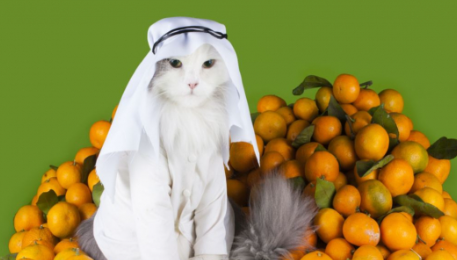- Attention-Grabbing Hook: Start with a thought-provoking statement about the significance of names in Islamic culture and the special place cats hold in Islamic tradition.
- Purpose of the Article: Explain the purpose of the article, which is to explore female cat names within the Islamic context, providing meaningful, culturally relevant options for pet owners.
- Overview: Briefly touch on what the reader can expect, such as the importance of names in Islam, the role of cats in Islamic history, and a detailed list of female cat names inspired by Islamic tradition.

Section 1: The Importance of Names in Islam
- Subsection 1.1: Significance of Names in Islamic Culture
- Discuss the concept of names in Islam, their spiritual significance, and how they reflect the qualities desired in an individual.
- Mention famous sayings or verses from the Quran that emphasize the importance of good names.
- Subsection 1.2: The Tradition of Naming in Islam
- Explore traditional naming practices in Islamic cultures, including how names are chosen for their meanings and historical significance.
- Discuss the influence of Arabic language and Islamic heritage on naming conventions.
Section 2: The Special Place of Cats in Islamic Tradition
- Subsection 2.1: Historical Role of Cats in Islam
- Narrate stories from Islamic history, such as the Prophet Muhammad’s love for cats and famous tales like that of his cat, Muezza.
- Discuss the symbolism of cats in Islamic culture, often seen as clean and blessed animals.
- Subsection 2.2: Ethical Treatment of Animals in Islam
- Explain the Islamic teachings on the treatment of animals, with a focus on kindness and respect.
- Discuss how these teachings influence the way Muslims might view and name their pets.
Section 3: Female Cat Names Inspired by Islamic Tradition
- Subsection 3.1: Names from the Quran and Hadith
- Provide a list of female cat names derived from the Quran and Hadith, explaining their meanings and significance.
- Examples: Aisha (alive, well-living), Fatima (one who weans), Layla (night), Safiya (pure, chosen).
- Subsection 3.2: Names of Prominent Women in Islamic History
- Discuss the names of prominent women in Islamic history that can serve as meaningful names for female cats.
- Examples: Khadijah (early baby, trustworthy), Hafsa (young lioness), Maryam (beloved, pious), Zainab (fragrant flower).
- Subsection 3.3: Names Reflecting Islamic Values
- List names that reflect core Islamic values such as mercy, purity, and love, which can be appropriate for female cats.
- Examples: Rahma (mercy), Noor (light), Sabr (patience), Huda (guidance).
Section 4: Cultural Variations in Naming Cats Across Islamic Regions
- Subsection 4.1: Arab Culture
- Explore how Arabic-speaking cultures name their cats, with examples of popular female cat names.
- Subsection 4.2: South Asian Muslim Traditions
- Discuss naming conventions in South Asia, focusing on how Islamic names are adapted in Urdu, Persian, and other languages.
- Subsection 4.3: North African and Other Islamic Regions
- Provide examples from North Africa and other regions, showing the diversity of Islamic female cat names.
Section 5: Practical Tips for Choosing a Name for Your Female Cat
- Subsection 5.1: Consider the Meaning and Sound
- Tips on choosing a name based on its meaning, ease of pronunciation, and how it reflects the cat’s personality.
- Subsection 5.2: Respect for Cultural and Religious Significance
- Discuss the importance of understanding and respecting the cultural and religious significance of names.
- Subsection 5.3: Personal Connection
- Encourage readers to choose a name that resonates personally with them, while also considering the cat’s characteristics.
| Name | Meaning | Origin | Historical/Cultural Significance |
|---|---|---|---|
| Aisha | Alive, well-living | Arabic | Name of the Prophet Muhammad’s wife |
| Fatima | One who weans | Arabic | Name of the Prophet Muhammad’s daughter |
| Layla | Night | Arabic | Name popular in classical Arabic poetry |
| Zainab | Fragrant flower | Arabic | Name of the Prophet Muhammad’s granddaughter |
Conclusion
- Summarize the Content: Reiterate the significance of choosing a meaningful name for your female cat in an Islamic context, and how it can reflect cultural values and personal connections.
- Call to Action: Encourage readers to thoughtfully select a name that resonates with their values and the unique personality of their cat.
FAQs
- Can I name my cat after someone from the Quran?
- Yes, you can, but it’s essential to understand the significance and respect the cultural and religious context.
- Are there any restrictions on naming pets in Islam?
- While there are no strict rules, it is recommended to choose names that reflect positive attributes and values.
- Is it common to name cats after Islamic historical figures?
- Yes, many pet owners choose names of significant Islamic figures to honor their legacy.
- How do I choose a name that suits my cat’s personality?
- Consider your cat’s traits, behavior, and how the meaning of the name aligns with her characteristics.






